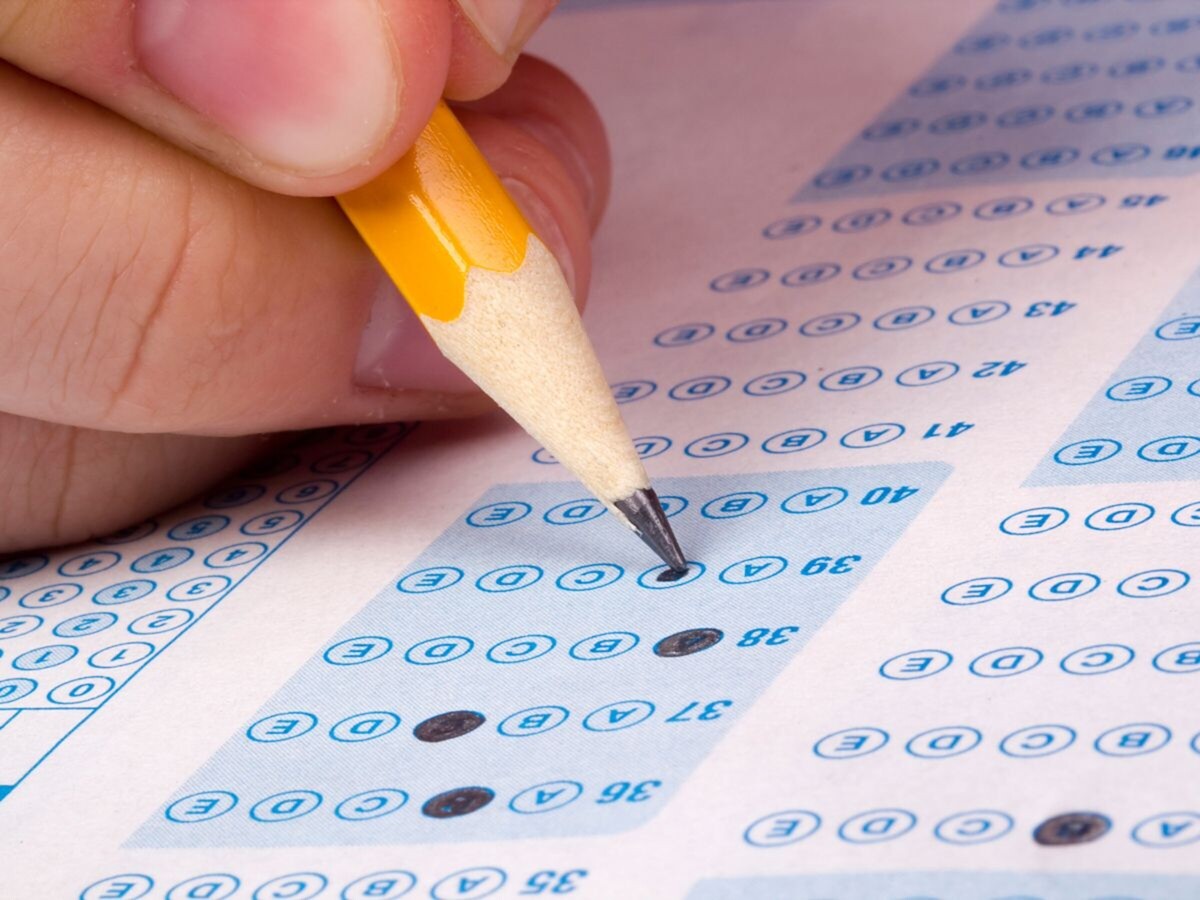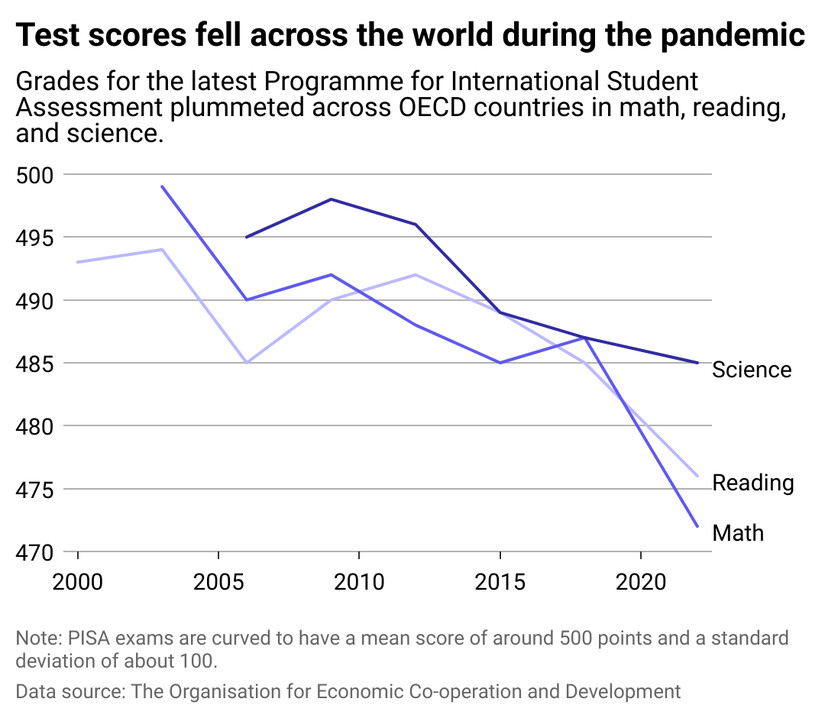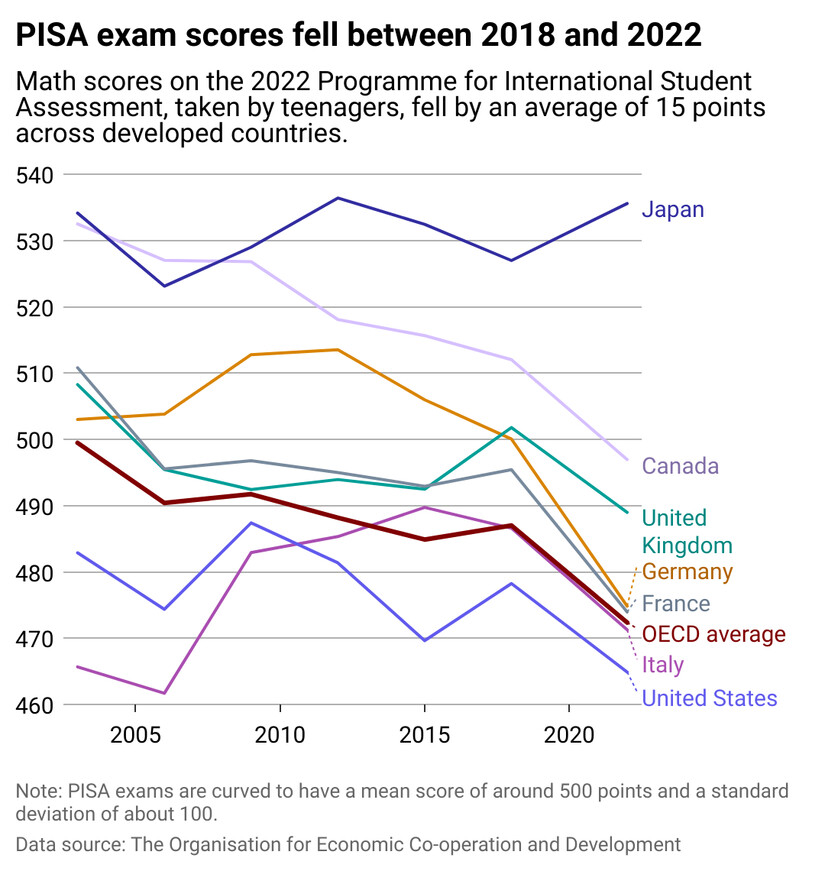Image


 Canva
CanvaIf the COVID-19 pandemic is considered the "stress test for education systems," much of the world failed, according to results from a global assessment showing the sharpest drop in test scores on record.
HeyTutor, an in-person and online tutoring provider, looked at data from 2022's Programme for International Student Assessment to see how students worldwide fared during the pandemic.
Data shows that from 2018 to 2022, students' scores fell by a record 15 points in math, and reading fell by twice the prior record, or by 10 points. In all three core subjects—math, science, and reading—scores fell in an equivalent of about one-half to three-quarters of a year of learning. Science, meanwhile, remained relatively stable.
Prior to 2018, the assessment scores never changed more than five points in reading or four points in math. Education experts said privatization, high-stakes testing, and the need for more investment in schools, regardless of socioeconomic status, were to blame for less-than-stellar test scores.
The pandemic is partly to blame for the lagging test scores. The data shows that many schools, teachers, and local governments were unprepared to transition into remote education, and learning outcomes were impacted as a result. In addition, students struggled when distracted by digital devices, making it harder to concentrate.
The pandemic, however, can't take all the blame for the changes, as indicated by varying student performance between subjects.
For the past decade, reading and science scores have declined. From 2012 to 2022, nearly half (46%) of the participating nations had declining scores in two out of the three subjects, the study found. During that same period, only six countries/economies improved in at least two subjects.
Reading and science scores peaked between 2009 and 2012 and started declining years before the COVID-19 pandemic shuttered school doors, according to the study.
Another reason for the decline in scores is that developing nations such as Costa Rica, Indonesia, Morocco, and Romania started incorporating universal secondary education. Previously marginalized students are increasingly getting a formal education, but they tend to lag in knowledge, which impacts the score results.

The PISA exam is the brainchild of the Organisation for Economic Co-operation and Development, an intergovernmental organization with 38 member countries. The OECD, based in France, works with governments, policymakers, and other stakeholders on key global issues.
In the late '90s, the OECD created the PISA after realizing that using years of schooling for examining education outcomes wasn't an effective way of assessing education. Instead, the PISA exam aims to assess what students actually know and can do.
Taken every three years, the test examines what 15-year-old students know in science, math, and reading and if they can apply that knowledge and those skills in real life. Only 15-year-olds are tested because globally, it's the oldest age that most students receive a standard education.
Last year, almost 700,000 students from 81 different countries and economies—ranging from Albania to Vietnam, Qatar, Colombia, Jamaica, and Canada—took the assessment.
The test scores students from Level 1 to 6, with Level 2 students having a base level of proficiency and Level 6 scorers having the highest ability.
The information gleaned from the PISA exams can be used worldwide to create better educational systems through collaboration and peer pressure, according to the OECD.

Global average math scores plummeted by approximately 15 points since 2018—the equivalent of three-fourths of a year of learning—but countries such as Germany, Iceland, and the Netherlands saw their PISA math scores drop by at least 25 points. America suffered a 13-point dip in average math scores.
On average, 1 in 4 15-year-olds in OECD member countries are considered low performers in mathematics, science, and reading and struggle to do "basic algorithms and interpret simple texts," the study found.
And wealthy countries that are doing worse in math may have less parental involvement in schools than before. Meanwhile, school systems with increased parental engagement in their child's learning showed improvement, or at least stability, with their math scores, according to PISA.
School systems with top-tier digital resources, competitive staff and increased peer-to-peer tutoring also scored better on the exam, as well as those that focused on the well-being of students and their learning.
The study's results overall indicate that while educational investment is important, ensuring funding is targeted to actual needs may be a way to create better test results in the future, especially as schools and students recover from the pandemic's impact on education.
Story editing by Shanna Kelly. Copy editing by Paris Close. Photo selection by Lacy Kerrick.
This story originally appeared on HeyTutor and was produced and
distributed in partnership with Stacker Studio.
Stacker.com is a Partner of Morristown Minute.